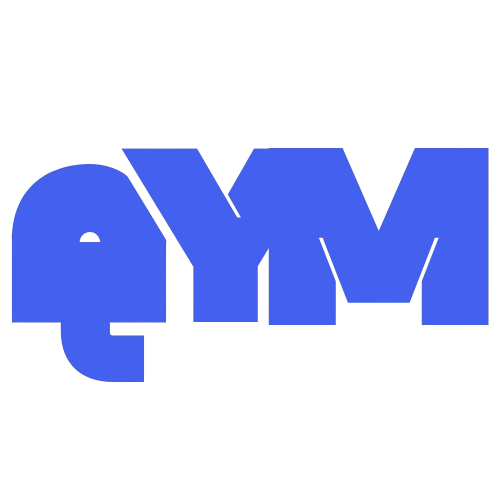Discover the top qualifications needed for higher education jobs, including educational requirements, essential skills, and career-building tips. Start your journey in higher education today!
Introduction
Higher education jobs have become increasingly sought after due to their potential for personal and professional growth, stability, and the opportunity to make a meaningful impact. Whether you’re considering a career in teaching, administration, research, or support roles, having the right qualifications is critical to success.
Also see; Top 10 Remote Education Jobs You Can Start Today
This blog post will provide a comprehensive guide to the top qualifications needed for higher education jobs, offering insights into educational requirements, skills, and strategies for building a successful career. By the end, you’ll have a clear roadmap to start your journey today.
Also see; The Ultimate List of Remote Education Jobs for Every Skill Set
1. Understanding Higher Education Jobs
1.1 What Are Higher Education Jobs?
Higher education jobs encompass a wide range of roles within colleges, universities, and academic institutions. These roles are generally categorized into three main areas:
- Teaching Positions: Professors, lecturers, adjunct faculty, and instructors responsible for educating students and designing curricula.
- Research Positions: Roles focused on conducting academic research, publishing findings, and contributing to knowledge advancement in various fields.
- Administrative and Support Roles: Positions like academic advisors, admissions officers, librarians, and IT support staff who ensure the smooth functioning of institutions.
Example Table: Types of Higher Education Jobs
| Category | Examples | Primary Responsibilities |
|---|---|---|
| Teaching Roles | Professor, Lecturer, Instructor | Educate students, create curricula, grade exams |
| Research Roles | Research Fellow, Lab Director | Conduct research, publish papers, secure funding |
| Administrative Roles | Registrar, Admissions Officer | Manage enrollment, student records, compliance |
| Support Staff Roles | Librarian, IT Specialist | Provide resources, tech support, library services |
1.2 Why Consider a Career in Higher Education?
A career in higher education offers numerous benefits, making it an attractive choice for many professionals.
Benefits of Higher Education Jobs
- Career Stability: Academic institutions provide long-term employment opportunities, often with tenured positions for teaching roles.
- Professional Growth: Opportunities for promotions, research funding, and leadership roles.
- Meaningful Impact: Contributing to education and research can leave a lasting legacy.
- Flexibility: Many roles offer flexible schedules, remote options, and sabbaticals for professional development.
- Competitive Benefits: Higher education institutions often provide excellent health insurance, retirement plans, and tuition assistance.
Quote:
“Teaching is the one profession that creates all other professions.” – Unknown
For instance, Dr. Maria Gonzalez, a professor at a public university, shared, “I chose a teaching role because it allows me to inspire the next generation of scientists while pursuing my research interests.”
2. Key Qualifications Needed for Higher Education Jobs
2.1 Educational Requirements
One of the most critical qualifications for higher education jobs is a strong educational background. The specific degree required depends on the role you’re pursuing:
- Teaching Positions: Most teaching roles require at least a master’s degree, while tenure-track positions often demand a Ph.D. For community colleges, a master’s degree may suffice.
- Research Roles: A Ph.D. or equivalent terminal degree is essential, especially for positions in research-intensive universities.
- Administrative and Support Roles: A bachelor’s degree in a relevant field (e.g., education, business, or IT) is typically the minimum requirement. Advanced degrees like an MBA may be necessary for leadership roles.
Fact:
In 2022, nearly 90% of higher education teaching roles required a master’s degree or higher, highlighting the importance of advanced education in this field.
Key Certifications
- Teaching Certifications: Required for roles focused on pedagogy and classroom management.
- Technology Proficiency Certifications: Useful for administrative and support staff to navigate Learning Management Systems (LMS).
- Specialized Credentials: Certifications in student advising, financial aid, or library sciences can give candidates an edge in administrative roles.
2.2 Relevant Work Experience
Work experience is often as crucial as educational qualifications. Institutions value candidates who demonstrate a clear understanding of academic environments.
Ways to Gain Experience:
- Internships: Many universities offer paid internships in administration, research, and IT support.
- Teaching Assistantships (TAs): Ideal for gaining classroom experience and building a teaching portfolio.
- Research Assistantships (RAs): Help hone skills in data collection, grant writing, and academic publishing.
- Volunteering: Roles like mentoring or assisting student organizations provide valuable exposure.
Case Study:
John Smith, now an academic advisor, began his journey as a volunteer in his university’s admissions office. He shared, “The experience allowed me to understand the needs of students, which helped me secure a full-time role in higher education.”
2.3 Essential Skills
Employers in higher education look for a combination of hard and soft skills.
Top Skills for Higher Education Jobs:
- Communication Skills: Crucial for teaching, advising, and collaborating with colleagues.
- Research and Analytical Skills: Essential for academic research and policy development.
- Leadership and Management: Vital for administrative and departmental leadership roles.
- Technological Proficiency: Familiarity with tools like Blackboard, Canvas, or Ellucian Banner is increasingly important.
3. Specialized Qualifications for Different Higher Education Jobs
3.1 Teaching Roles
Teaching positions require a balance of subject-matter expertise and the ability to engage students effectively.
Key Requirements for Teaching Roles:
- Advanced degrees in the subject area.
- Pedagogical training or certifications.
- Strong communication and classroom management skills.
3.2 Administrative Roles
Administrative roles demand organizational and leadership abilities.
Key Requirements for Administrative Roles:
- Knowledge of institutional policies and higher education laws.
- Budgeting and project management expertise.
- Certifications like PMP (Project Management Professional) can be advantageous.
3.3 Research Positions
Research roles are highly specialized and demand extensive academic qualifications.
Key Requirements for Research Roles:
- Terminal degree in the field.
- Proven track record of academic publications.
- Skills in securing grants and managing research teams.
3.4 Support Staff and Adjunct Roles
Support staff roles often require adaptability and technical skills. Adjunct positions are more flexible but may lack the benefits of full-time roles.
4. How to Build the Right Qualifications for Higher Education Jobs
4.1 Planning Your Education Pathway
Choosing the right degree and institution is critical. Consider factors like accreditation, faculty expertise, and program reputation.
4.2 Building a Professional Portfolio
A strong portfolio showcases your achievements, research, and professional experience. Include:
- Academic publications or presentations.
- Certifications and professional development courses.
- Letters of recommendation.
4.3 Pursuing Continuous Learning
The higher education field evolves constantly. Staying updated through professional development courses, workshops, and conferences is crucial.
5. Tips for Landing Your First Higher Education Job
5.1 Crafting an Effective Job Application
- Tailor your resume to highlight relevant experience and skills.
- Write a compelling cover letter addressing the job requirements.
5.2 Acing the Interview
- Prepare answers for common questions like: “Why do you want to work in higher education?”
- Highlight your skills and passion for education during the interview.
6. Challenges and Opportunities in Higher Education Jobs
6.1 Common Challenges
- High competition for tenured positions.
- Balancing teaching, research, and administrative responsibilities.
6.2 Opportunities for Growth
- Advancement to leadership roles, such as deanships or departmental chairs.
- Transitioning between academia and the private sector.
7. Real-Life Case Studies
Case Study 1:
Dr. Emily Harper transitioned from teaching high school to becoming a university lecturer by pursuing a master’s degree and gaining adjunct experience.
Case Study 2:
Mark Davis leveraged his IT experience to secure a position as a technology officer at a community college after completing relevant certifications.
8. Frequently Asked Questions
- What degrees are most useful for higher education jobs? Master’s or Ph.D., depending on the role.
- Can I work in higher education without a Ph.D.? Yes, especially in administrative or support roles.
- How do I transition to higher education from another industry? Gain certifications, volunteer, or pursue a relevant degree.
9. Conclusion
Higher education jobs offer a fulfilling career path, but success requires the right qualifications and preparation. Whether you’re pursuing a teaching, research, or administrative role, planning your education, gaining experience, and developing essential skills will set you on the right path.
Start your journey today by exploring opportunities, building your qualifications, and taking the first step toward a rewarding career in higher education!



